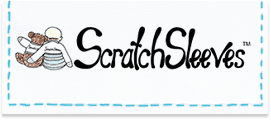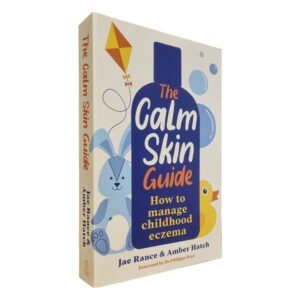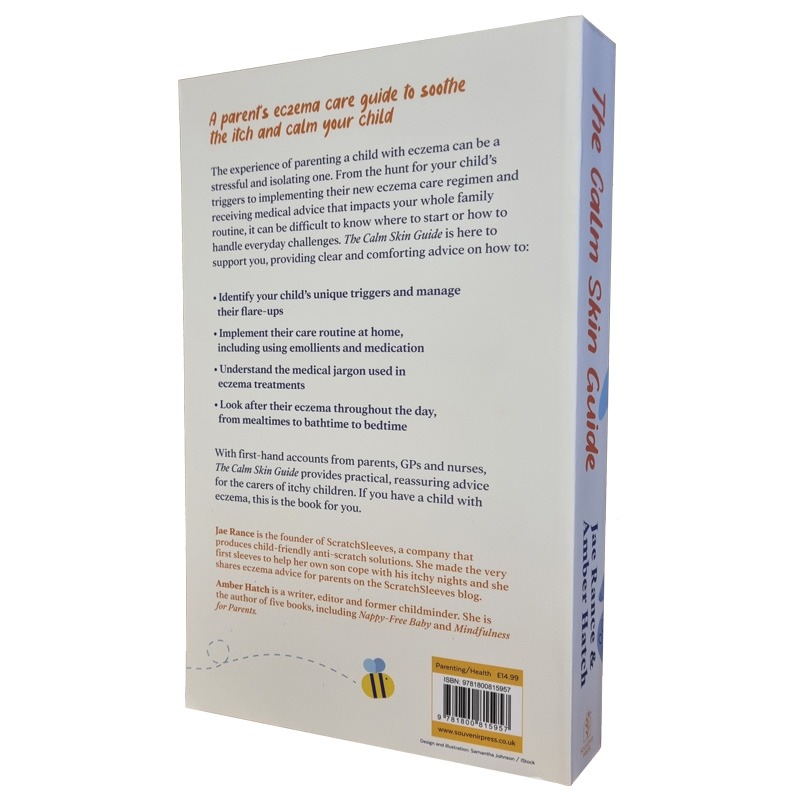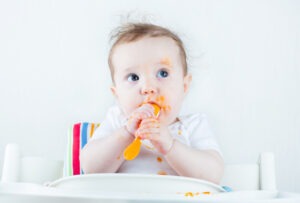

By now you’re probably only too aware that having a baby with eczema means everything is a little more complicated. From everyday activities such as washing clothes and bathing, to the bigger challenge of weaning, you’ll need to take your child’s eczema into account every step of the way. If you’re a little daunted by the challenge of weaning an eczema baby, you’re not alone.
When it comes to weaning a baby with eczema, there are two important points to bear in mind. Firstly, certain food types are thought to aggravate the eczema, so must be introduced with caution. Secondly, a baby who has suffered with eczema in their first three to six months is more likely to have an allergy to one or more foods. Allergy symptoms can vary from mild to severe.
A medical paper published in 20151 examined the relationship between early-onset eczema and food allergies. The study found that ‘one in five infants with eczema were allergic to peanut, egg white or sesame, compared to one in 25 infants without eczema.’ It also found that ‘infants with eczema were six times more likely to have an egg allergy and 11 times more likely to have peanut allergy by 12 months than infants without eczema.’
It has also been shown that the risk of food allergy rises with the severity of a baby’s eczema2. If you are concerned about food allergy risk, talk to your GP or health care advisor before you start weaning. It may be possible to arrange allergy testing before your start.
An awareness of the relationship between food and eczema will help you go through the weaning process with greater confidence and less worry.
When to wean your baby
Guidelines around when to start weaning your baby vary around the world. The World Health Organisation recommends exclusive breastfeeding until six months. In reality, research shows that the majority of babies across the developed world are weaned earlier than the guidelines suggest. In the UK, 30% of babies have been introduced to solid food by 4 months and 75% by 5 months3.
Contrary to previous advice, there is growing evidence to suggest that introducing potentially allergenic foods between the ages of four to seven months has a protective effect against developing food allergies. This is especially true in babies at higher risk of developing allergies. Babies with higher risk of allergies are defined as those with eczema and/or a family history of allergies. See our article on the science looking at preventing food allergies here.
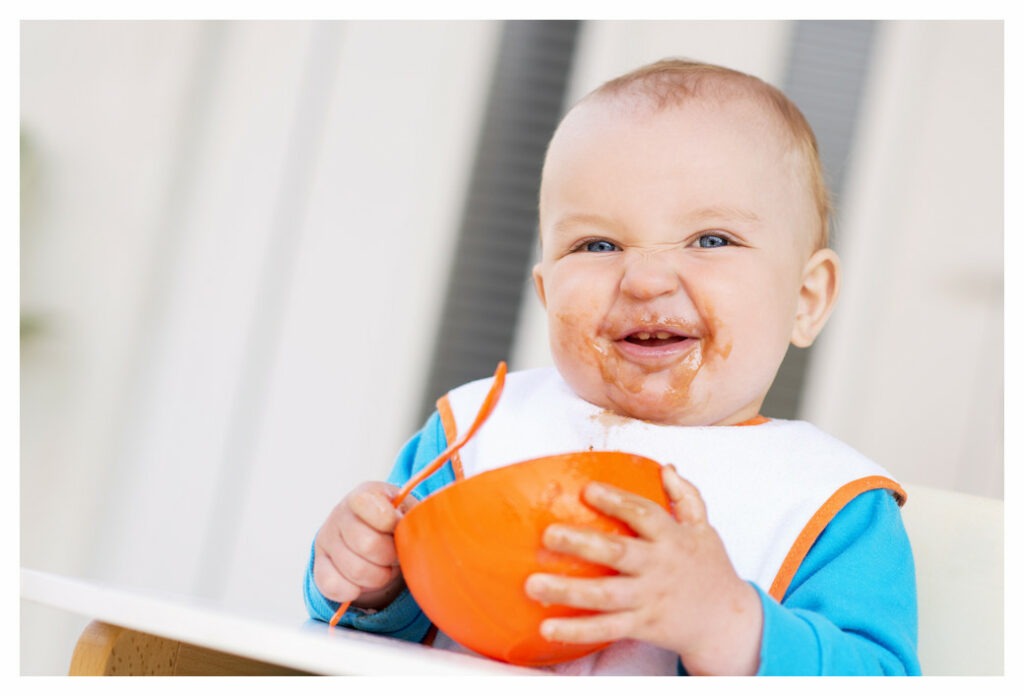
Weaning guidelines are starting to reflect this new evidence. In the USA, the NIAID guidelines encourage the active introduction of peanut protein into the diet of high risk infants (those suffering from eczema) at 4-6 months. In Australia, the ASCIA guidelines encourage the introduction of all allergic foods to all infants from 4 months. The BSACI in the UK recommends introducing solids to high risk babies when they are physically ready. From around 6, but not before 4 months4. If your baby has more severe eczema (requiring daily use of steroid creams), these guidelines recommend talking to your GP or health care professional before you start weaning. Although these children are at higher risk of a reaction, they also have the most to gain from early weaning.
Regardless of when you start weaning, if you’re breastfeeding it’s recommended that you continue to do so while introducing solid foods.
Signs your baby is ready for solids
Babies differ in when they are ready for solid foods. Signs include:
- Being able to sit relatively unaided in a high chair, with their head steady
- Trying to reach out to grab food and put in their mouth
- Loss of the “tongue thrust” reflex. Babies who aren’t ready for solid foods will push the food back out of their mouths with their tongue. They get more around their face than they do in their mouth.
How to introduce solid foods to a baby with eczema
If there’s a history of food allergy in your family, or if your baby already has eczema, you’ll need to be careful when you begin to introduce solid foods. The NHS recommends introducing foods that can trigger an allergic reaction one at a time, at least 3 days apart, and in very small amounts to help you to spot the signs5.
When selecting your baby’s first solid foods, plain baby rice mixed with their usual milk or plain vegetable purees are the best options to start. These foods are the least likely to cause an allergic reaction. Good vegetables to try include root vegetables such as potato, carrot, swede, sweet potato and butternut squash as well as greens such as spinach, green beans and courgette. You can also try pureed fruits such as pear, apple, banana and papaya.
After a few weeks you can begin to introduce other solids, but do so one at a time and with a gap of three days in between each new food. This will make it easier to spot any adverse reactions. This second phase of weaning can include:
- Soft cooked meat such as chicken
- Mashed fish
- Pasta and noodles
- Toast, pieces of chapatti
- Rice and lentils
- Mashed hard boiled eggs
- Whole cows’ milk, used in cooking or mixed with food.
Once you’re comfortable with these food groups, or have identified potential problem areas, you can begin to give your baby a wider range of other fruits including citrus, kiwi and berries.
By the age of 12 months, your baby should have been introduced to all the major allergenic foods, where appropriate.
- TIP: Keep a diary at the end of each mealtime so you can begin to isolate which foods may affect your child.
Introducing potentially allergenic foods
Research into food allergy shows that early introduction of potentially allergenic foods can prevent food allergies developing by training your baby’s immune system to recognise the potential allergens as friend rather than foe. See our post on preventing food allergies. Foods that are likely to cause allergies include:
- cows’ milk
- eggs
- foods that contain gluten, including wheat, barley and rye
- nuts and peanuts (serve them crushed or ground)
- seeds (serve them crushed or ground)
- soya
- shellfish (do not serve raw or lightly cooked)
- Fish
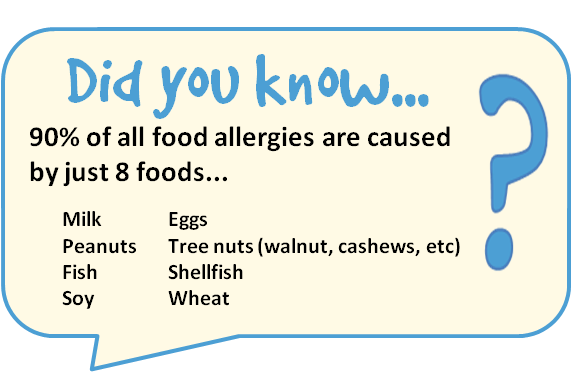
These foods can be introduced once your little one is comfortable eating pureed vegetables. Potentially allergenic foods should be well cooked as this is less likely to cause a serious reaction. Obviously don’t give your baby whole peanuts, instead smooth peanut butter can be mixed with pureed fruit or vegetables.
If possible, introduce new foods on days when your little one’s eczema is under control so you have a clear starting point to observe how the foods are affecting their skin. It’s a good idea to introduce new foods during the morning or early afternoon. This will enable you to deal with any adverse reactions during the day when your local GP surgery is open. As reactions to food can take up to 48 hours to show, leave at least 3 days between each introduction.
- If you’re really worried about this, it’s perfectly fine to sit in the coffee shop at your local hospital when you first try giving your little one a potentially allergenic food.
Eczema flares can be triggered by a huge variety of things, so if your baby’s skin seems to react badly to a new food, leave a few days before re-trying a small amount to confirm that it was definitely that food that caused the flare up.
Once your baby has tried an allergenic food and tolerated it well, you need to keep offering the food on a regular basis in order to maintain tolerance. As a guide, you should be aiming for 1 egg and 2 teaspoons of peanut butter per week.
Non-allergic reactions to food
Food can also cause non-allergic reactions, which can also aggravate eczema. The most common intolerances are to chemicals naturally occurring in foods including salicylates, amines and glutamine [see our post about chemical intolerances]. For example, if your baby’s eczema is aggravated by bananas, they may be sensitive to amines. In most cases, these intolerances are thought to be related to poor liver function (normal in under 2s) and will resolve as your child grows.
Other foods, like fresh tomatoes and strawberries, can cause localised skin reactions in some children due to their acidic nature. You can protect your child’s face from more acidic foods with Vaseline or emollient especially if their skin is already a little cracked or weepy.
What are the symptoms of a food allergy?
If your child has a food allergy, you may see the signs immediately or they may be delayed. Severe allergic reactions don’t always happen on the first contact and can build with subsequent exposures.
Look out for for these allergic reactions:
- sneezing.
- a runny or blocked nose.
- red, itchy, watery eyes.
- wheezing and coughing.
- a red, itchy rash.
- worsening of asthma or eczema symptoms.
Delayed reactions usually begin to show after two hours with symptoms such as loose stools or mucus/blood in stools. Babies may also experience constipation, vomiting, gastro-oesophageal reflux, nappy rash as well as eczema.
If you suspect your baby has a food allergy, you will need to contact your GP or health care provider to get this confirmed (see our blog post on allergy testing). Once a food allergy has been confirmed you should be referred to a paediatric dietician who will be able to advise you on how to ensure that your baby isn’t missing out on necessary nutrition.
You can find details of more severe reactions in our article on baby eczema and anaphylaxis.
Risks of elimination diets: A word of warning
While it can seem sensible to avoid eating a food that appears to be aggravating eczema, this can result in the development of a potentially fatal food allergy as prolonged avoidance can result in the body losing its immunity to that food.
Always consult your GP or a registered dietitian before making any long term restrictions to your child’s diet.
What about pre-prepared baby foods?
Ideally, you’ll need to avoid using pre-prepared baby foods as these contain additional chemicals including preservatives, which can aggravate eczema. When that’s impractical, try to stick to brands with low or natural preservatives like lemon juice, citric acid or ascorbic acid.
Managing the weaning process: the practicalities
Weaning is a messy business and often involves food going in all directions. While this is an entertaining rite of passage for most parents, for those with eczema babies there are a few added complications.
You’ll have to wash their clothes more often, which means choosing your wash powder carefully, and knowing which stain removers to try. You may also like to consider the bibs and protective clothing which will make the weaning process easier. We became particularly fond of coveralls (available from Amazon) because they’re non-scratchy and are fastened with buttons rather than Velcro.
You’ll also need to consider the stiffness of waterproof fabrics which many parents use during feeding time – the softer the better for a child with eczema.
A note on baby-led weaning
It’s likely you’ll hear of the term Baby-led weaning (BLW) when you begin to explore the weaning process. Baby-led weaning means that instead of feeding your baby with a spoon, you allow them to feed themselves with hand-held food. Baby-led weaning means offering your baby finger foods and letting them feed themselves from the start rather than spoon-feeding or pureeing foods. If this is the approach that appeals to you, you’ll still need to take extra care to ensure your child is exposed to only one new allergen at each mealtime in order to isolate the cause of a reaction.
In summary
- Be aware that if you have a child with eczema, they’re more likely to have a food allergy.
- Early introduction of potentially allergenic foods can prevent the development of potentially serious food allergies in high risk babies.
- You can begin to wean your eczema baby when they’re physically ready but not before 4 months old.
- Introduce plain vegetables first, once that they are comfortable with these, you introduce them to well cooked, potentially allergenic foods including cow’s milk, eggs and peanuts.
- Introduce known allergens one at a time. Leaving a gap of at least 3 days before you introduce another.
- Introduce new foods early in the day when medical services are easy to access.
- Look out for immediate reactions, but be aware that there could be a delay of 2 hours and beyond for symptoms to present themselves.
- Don’t delay introducing potentially allergic foods, as this increases the chances of your child developing a serious food allergy.
Need more information? Take a look at the guidance on weaning offered by the NHS and Allergy UK, and talk to your GP or health care advisor.
Our sources
- Martin et al 2015, Which infants with eczema are at risk of food allergy? Results from a population-based cohort. https://pubmed.ncbi.nlm.nih.gov/25210971/
- Hill et all. 2007. Confirmation of the association between high levels of immunoglobulin E food sensitization and eczema in infancy: an international study. https://pubmed.ncbi.nlm.nih.gov/18028467/
- Infant Feeding Survey – UK. 2010: Chapter 8, Introduction of solid foods. https://files.digital.nhs.uk/publicationimport/pub08xxx/pub08694/ifs-uk-2010-chap8-intro-solids.pdf
- British Society for Allergy & Clinical Immunology. Preventing food allergy in your baby: information for parents. https://www.bsaci.org/wp-content/uploads/2020/02/pdf_Infant-feeding-and-allergy-prevention-PARENTS-FINAL-booklet.pdf
- NHS. Safe Weaning. https://www.nhs.uk/start4life/weaning/safe-weaning/food-allergies/
Here at ScratchSleeves, we don’t just share our experiences of bringing up an eczema child and favourite allergy-friendly recipes, we also manufacture and sell our unique stay-on scratch mitts and PJs for itchy babies, toddlers and children. We now stock sizes from 0-adult years in a range of colours. Visit our webshop for more information.
The Calm Skin Guide
Love our blog? It's also available in book format with:
- First hand accounts from parents & medical professionals
- Easy navigation
- Comprehensive index
- Additional material
Signed copies available at no extra cost
Written by:
Interesting article? Don't keep it to yourself...
Read next...
You may also find helpful...
Quick buy


Multi Buy Discount

Spend between £30 - £60 and save 5%
Spend between £60 - £120 and save 10%
Spend over £120 and save 15%
Discount automatically applied at checkout
No Quibbles Guarantee

ScratchSleeves abide by a no quibbles guarantee.
Free UK Postage

Free packing and postage on all UK orders. For overseas orders to Europe postage is from £3.50, to USA is £6.50 and to the rest of the world, from £3.75.

